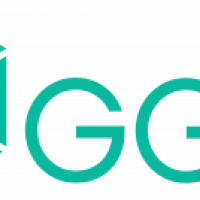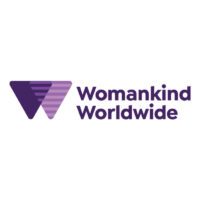The Break Free! consortium is commissioning the end-term evaluation (ETE) to an external party
(consultants) to measure different aspects of the programme, e.g., effectiveness, coherence and
sustainability as per the grant agreement with the MFA and the ToR developed by the Break Free!
consortium. Design of the study, sampling, ethics approval, data collection and analysis and the
development of (an) evaluation report(s) will be done by the external consultants. The ETE shall be
conducted between April 2025 and April 2026, and must be submitted to the Ministry of Foreign Affairs
before 1 May 2026.
The ETE will be guided by a reference group with external and internal representatives. This Terms of
Reference (ToR) outlines the role, responsibilities and tasks, composition and required time
investment of the Reference Group.
3. Composition of the Reference Group
The Break Free! consortium establishes a reference group consisting of representatives of the
consortium; the Ministry of Foreign Affairs’ focal person for Break Free!; and external thematic and
methodological experts who are independent of the Break Free! consortium, and who do not
represent their employers, governments or organizations. External members are experts who are not
benefitted from and/or take part in the implementation of the Break Free! programme.
The Reference Group has the mandate to consult with the programme in different countries to inform
their decisions.
The Reference Group will consist of 5-7 members who complement each other as a team and together
have extensive knowledge and expertise in the following fields:
1. Methodological design of large scale and complex evaluations and evaluation methods suitable
for lobby and advocacy programmes, preferably in Southern, East and/ or West Africa;
2. Evaluating Theories of Change with mixed evaluation methods;
3. Experience in applying IOB criteria in evaluations1
;
4. Lobby and advocacy for adolescent education and SRHR, in particular for the prevention of child
marriage, teenage pregnancy and/or FGM/C, preferably in Southern, Eastern and/or West Africa;
5. Capacity development (for lobby and advocacy) of Civil Society Organizations.
The selection shall further be guided by the following criteria:
• Credibility and independence;
• Commitment and availability to participate in (online) meetings;
Geographical representation and familiarity with the various
contexts of the Break Free! programme;
• Gender and age balance;
• For external members: absence of conflict of interest.
In summary, the Reference Group is foreseen to be composed of:
1. The MFA focal person (internal);
2. A KIT representative (internal);
3. SRHR experts with knowledge about community engagement; lobby and advocacy; and
strengthening civil society organizations (external);
4. A junior/young programme staff (internal); and/or
5. A youth representative (external); and/or
6. A consortium representative (internal)
In consultation with the Reference Group members, Break Free! aims to appoint a chairperson, who
will be responsible for the facilitation of communication with the consortium desk and within the
group, and for the aggregation and alignment of advice and feedback of Reference Group members to
the consortium desk and the (external) consultants.
To promote meaningful involvement, a buddy system or alternative support for the youth members
can be organized.
4. Responsibilities and tasks
The ETE is commissioned by the Break Free! consortium Desk on behalf of the consortium. The
consortium Desk operationally supports the management and governance of the Break Free!
consortium and consists of a consortium coordinator and consortium PMEL advisor, who will act as
principal points of contact for the evaluation. The PMEL advisor is chair of the PMEL working group
with members representing the consortium member organizations. The PMEL working group, under
the leadership of the advisor, is responsible for monitoring the progress and quality of the ETE,
including major milestones. They oversee the evaluation design and process and provide technical
expertise to the consultant(s) if needed.
The reference group assures the quality, relevance and appropriateness of the methodologies and foci
chosen and is responsible for reviewing and approving the following:
– Terms of Reference of the End-Term Evaluation consultancy;
– Selected consultant(s) to be contracted as evaluator;
– Inception report by the evaluator;
– Ethics protocol;
– End-Term Evaluation report by the evaluator
The tasks of the Reference Group include:
– Review of (draft) documents, formulate feedback and advice;
– Assure relevance and appropriateness of methodologies and foci chosen;
– Review of final versions of evaluation ToR, proposed consultants for the evaluation, inception
report, ethics protocol and final end-term evaluation report;
– Coordinate with other Reference Group members (notably the chairperson) to ensure
consistency in feedback and advice towards the Consortium Desk and consultant.
Communication
All communication on the end evaluation from the reference group with the consortium, the MFA and
other parties involved, will take place via the consortium desk.
7. Compensation
Financial compensation is available for the commissioned external members, based on actual time
invested, with an agreed maximum of days. Interested external candidates are requested to include a
remuneration proposal in their application.
8. Selection of the Reference Group members
Break Free! consortium members are invited to invite individuals that would be suited to join the
Reference Group and to share the ToR in their networks.
Interested candidates are invited to submit an application. CVs together with a short motivation will be
requested from prospective members to assess profiles, aiming for a diverse group with
complementary experience and expertise and ensuring a balance of expertise, seniority level,
backgrounds, regional representation and gender. Reference Group members will be shortlisted by the
Break Free! PMEL working group in consultation with the Break Free! programme committee.
The MFA focal point will be invited, as per the grant requirements and internal representatives will be
selected by the PMEL working group in consultation with the programme committee.












